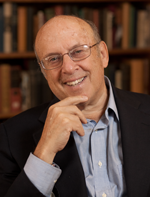
Jeffrey Carduner, Aesthetic Realism consultant, writes:
“Questions, Life, & Beauty,” is the new issue of The Right of Aesthetic Realism to Be Known. It’s about something moving and hopeful: the fact that we have questions within ourselves all the time, looking for answers. Some seem very ordinary. Others, we may not articulate, but they’re part of who we are. Others still, we may try (hurtfully) to evade. This issue describes, in a clear, exciting way, some questions humanity has asked over the centuries. And today it’s more important than ever that we ask the right questions. In fact, this issue quotes “the most important question for our time”—which all people need to ask and answer. Read “Questions, Life, & Beauty,” the latest issue of The Right of Aesthetic Realism to Be Known.
The commentary by Ellen Reiss begins:
Dear Unknown Friends:
With this issue of TRO we begin to serialize the very surprising and important lecture Hamlet and Questions, by Eli Siegel. It was given in November 1976.
Questions can be beautiful or ugly, kind or cruel. And I have seen that in Aesthetic Realism itself, the most needed authentic, kind questions—scientific, artistic, humanity-honoring, thought-clarifying questions—are magnificently articulated and asked.
Aesthetic Realism arose from Eli Siegel’s desire to know—and central to knowing is the asking of questions. In his quest to know, he asked—with sincerity, logic, depth, and immense pleasure—questions about what reality is; what makes for beauty; what the deepest desire of a person is, and what in the self of everyone interferes with our deepest purpose. The material of his thought was centuries of human knowledge in every field, and it was also objects, events, and people. His scholarship was tremendous, in extent and depth. He also was unlimitedly interested in people, all people. He wanted to understand a person of centuries ago, and someone to whom he spoke in a New York afternoon. All this knowing depended on questions, asked of oneself and sometimes others….Read more